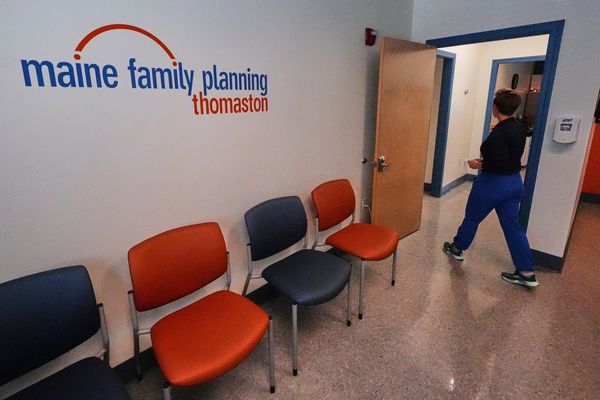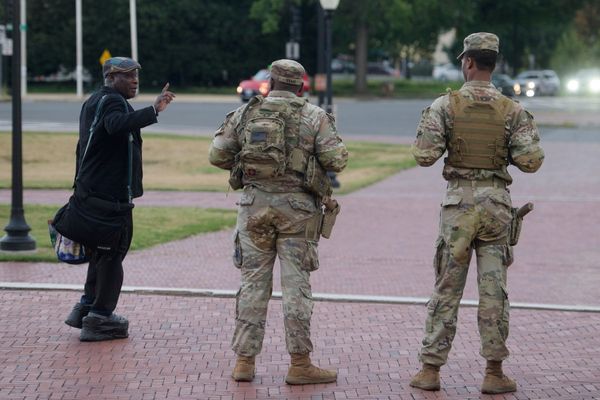
“I remember one particular patient who sent a letter back to the ward, saying they’re doing very well now and that life is worth living. That’s why I do this job – to give them hope,” says staff nurse and deputy ward manager Tomas Lugg, who has worked at the Priory hospital in Roehampton for two years. “It can be tough working on a child and adolescent mental health services (CAMHS) ward. You’re dealing with mental health issues as well as teenage dynamics.”
The Priory Group’s CAMHS [pdf] has 13 units at eight hospitals around the UK, which includes specialist eating disorder units; general adolescent units that treat depression, anxiety, and psychosis; psychiatric intensive care units (PICU); and low secure units (LSU) for young people who need longer-term therapy, before they can move back into the community.
David Kingsley is the clinical director for CAMHS and a child and adolescent psychiatrist. He also sees patients at an all-female LSU at the Priory Cheadle Royal hospital in south Manchester. Service users have usually experienced significant trauma, and been in hospital for a number of years beforehand. Many will feel they’re beyond help.
“They’ve often had a pretty hopeless journey of not really getting better, despite having been in maybe two or three different units,” says Kingsley. “It’s quite hard for people to believe it’s possible to change after that length of time. We do intensive therapy work with them to help them process the trauma and find different ways of coping … some are able to go on to university, many have jobs, and manage to be independent. We’ve had some great successes.”
What makes a big difference, he adds, is the expertise the team has with this type of complex trauma, and the amount of time they spend with that young person. Telling a patient they are likely be at the unit for at least 12 months (and up to 18 months), helps them feel secure and they subsequently tend to be more likely to respond to therapy.
The team also has a “low key approach to risk”, he says, compared to other CAMHS settings that he’s worked in, which helps de-escalate difficult situations. When staff jump in to restrain or control a young person in times of crisis, for example, this can just traumatise them further and make the situation worse.
“If you can create a calm and contained attitude to risk, the young person feels like we’re in control,” he adds. “[And] they start to be in control of themselves as well.”
This approach has been formalised by Kingsley and a group of colleagues in the form of a new working with young people framework. It’s now being distributed as a training module for all staff who work in CAMHS at the Priory Group to ensure consistency across the wards. One of those running the training is lead therapist Jennifer Scott, who is based at the Priory hospital in Chelmsford. She manages a 17-bed acute services ward, where patients (the majority referred by the NHS) are admitted in times of crisis and stay for around three months. Chelmsford also has a CAMHS outpatient service for private patients.
“[The guidelines are] based on five principles – nurture, expectation, respect, enabling, and reflection,” Scott says about the training. “When patients are admitted [in Chelmsford], they’re normally really scared, really confused and it’s often their first time staying away from home. They need lots of nurturing … over time we try to reduce observations and restrictions and help them learn skills and techniques to cope with difficult emotions, to manage stress and difficult relationships.”
Working with patients’ families is also a key part of therapy on any CAMHS ward. Scott’s team was recently nominated for a Priory Pride award for setting up a multi-family group for parents to attend. The aim is for them to learn about what happens on the ward, and how they can apply the same principles at home once the patient is discharged. It’s an important step that family therapist Mary Smeeth, who works at Priory Ellingham hospital in Norfolk, says is often excluded in adult mental health services.
“That always feels a bit off to me as a family therapist. Adults also operate within the context of their family,” Smeeth says. “The young person here gets doctors, nurses, occupational therapists, speech therapists, psychology – and my job is to be the link between the family and all of that other good work that’s happening with their son or daughter.”
Ellingham specialises in adolescents with neurodevelopmental delay, challenging behaviour and psychiatric symptoms – many patients will be on the autism spectrum, she adds. It’s a niche service that can be a last resort for many families. “You have to be really quite unwell to end up in our hospital, so any family will have been through the mill before their child comes to us. My job is to support them and work with whatever is happening in the family. We have everyone because these type of diagnoses [do not discriminate by] age, race, class, income or geography.”
This type of specialist care also requires the multidisciplinary teams to have a wide range of experience when they’re working together to look after patients. Where the Priory Group differs compared to other hospitals, says Kristina Irons, divisional director of quality for the north, is the size of its CAMHS network, which also means there is bespoke training and expertise available to staff. “Being part of a bigger organisation – and that bigger picture – has so many advantages,” she says. “You’re not just ploughing the lonely furrow in a hospital with one or two CAMHS wards, where you don’t have enough people to share ideas with, or to help when things are difficult ... We’re able to do more than one hospital could ever do.”







